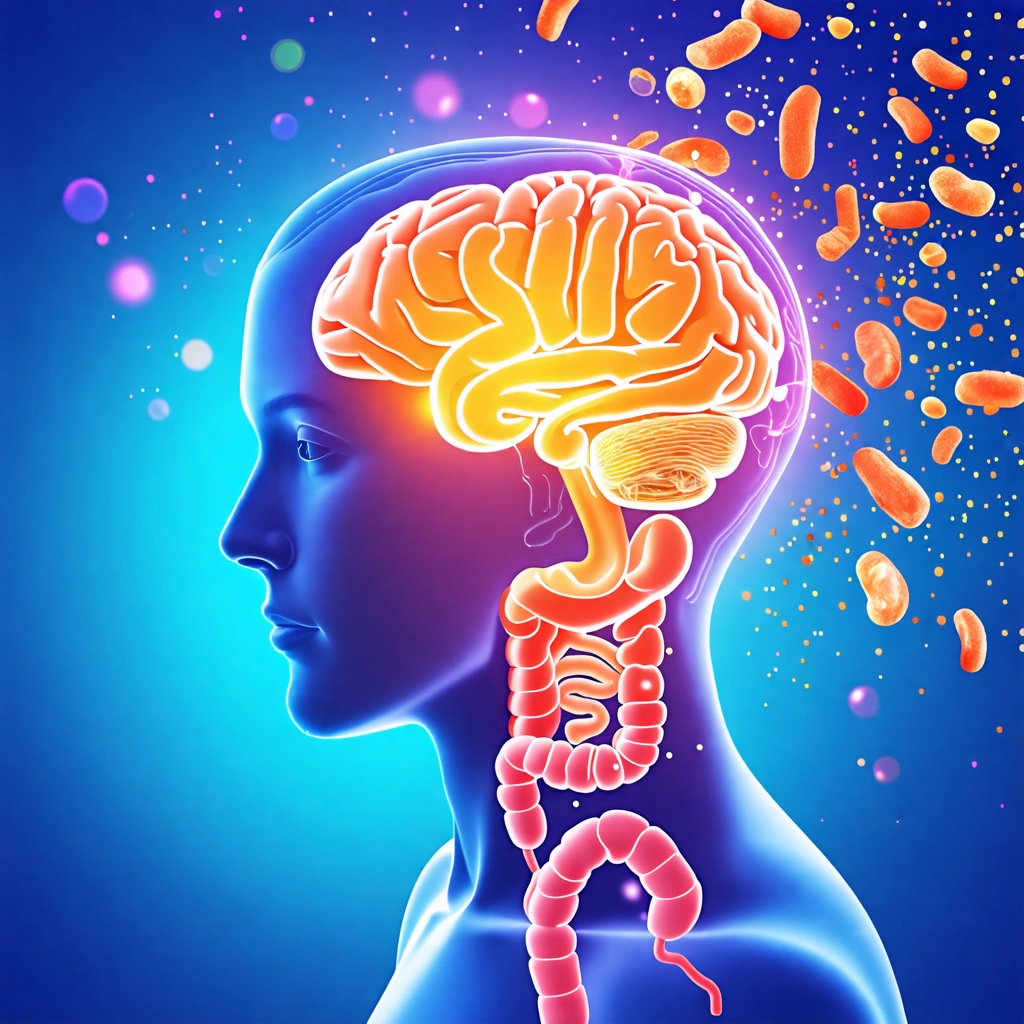
Exploring the Connection Between Gut Health and Mood
Takeaways:
- The gut-brain axis is a bidirectional communication system linking the gastrointestinal tract and the brain.
- Gut health significantly influences mood, anxiety levels, and overall mental well-being.
- Probiotics and a balanced diet can improve gut health, potentially enhancing mood and reducing symptoms of depression and anxiety.
In recent years, researchers have unveiled a fascinating connection between gut health and mood. This relationship is primarily mediated by the gut-brain axis, a complex communication network linking the gastrointestinal tract and the brain. Understanding this connection is crucial for those seeking to improve their mental well-being through dietary and lifestyle changes.
The Gut-Brain Axis: A Complex Communication Network

Research indicates that the gut microbiome, which consists of trillions of microorganisms residing in our intestines, plays a pivotal role in this connection. A healthy, diverse microbiome is associated with improved mental health outcomes, while an imbalance—often referred to as dysbiosis—has been linked to anxiety, depression, and other mood disorders.
How Gut Health Affects Mood

- Neurotransmitter Production: The gut microbiome is responsible for producing a significant proportion of neurotransmitters, including serotonin, often dubbed the “feel-good” hormone. Approximately 90% of serotonin is produced in the gut, highlighting the importance of gut health in mood regulation.
- Inflammation: An unhealthy gut can lead to increased inflammation in the body, which is associated with various mental health issues. Chronic inflammation can affect brain function and mood, contributing to feelings of anxiety and depression.
- Stress Response: The gut microbiome influences the body’s stress response. A healthy microbiome can help regulate cortisol levels, the stress hormone, thereby reducing anxiety and promoting a sense of calm.
Given these insights, it is clear that maintaining gut health is essential for overall mental wellness. So, how can one nurture their gut microbiome?
Nurturing Your Gut for Better Mood

- Incorporate Probiotics: Probiotics are beneficial bacteria that can help restore balance to the gut microbiome. Foods rich in probiotics include yogurt, kefir, sauerkraut, kimchi, and other fermented products. Consider including these in your daily diet.
- Eat a Diverse Diet: A diet rich in whole foods—fruits, vegetables, whole grains, and lean proteins—can promote a healthy microbiome. Different foods encourage the growth of various beneficial bacteria, enhancing gut diversity.
- Limit Processed Foods: High sugar and processed foods can disrupt gut health and lead to dysbiosis. Reducing these foods can have a positive impact on both gut and mental health.
- Stay Hydrated: Water is essential for digestion and helps maintain a healthy gut environment. Aim for adequate hydration throughout the day.
- Manage Stress: Chronic stress can negatively affect gut health. Engage in stress-reducing activities such as yoga, meditation, or regular physical exercise to support both gut and mental well-being.
Implementing these strategies can lead to improvements in gut health, which may subsequently enhance mood and overall mental health.
Conclusion




